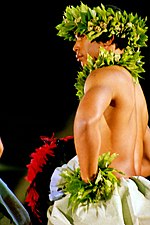Rosalino "Chalino" Sánchez Félix (30 August 1960 – 16 May 1992) was a Mexican singer-songwriter. Posthumously called "El Rey del Corrido", he is widely considered one of the most influential narcocorrido singers of the late 20th century. He was an initial pioneer in Mexican music. He began composing songs for inmates that had stories they wanted to preserve in a ballad. Chalino also composed and sang romantic and radio-friendly songs.
Sánchez was born in Sinaloa to Santos Sánchez and Sannorina Félix. The youngest of the Sánchez family, Rosalino had aspirations of musical notoriety from a young age. In 1984, Chalino's brother Armando was murdered in a hotel in Tijuana, inspiring him to compose his first corrido Recordando A Armando Sánchez. Eventually, Chalino began to profit via his compositions and would often be gifted with guns and 'presents' by his customers. Prior to his brothers' murder, Chalino was introduced to Ángel Parra, who became interested in his musical talents after hearing a performance. Ángel Parra arranged for Chalino to have a meeting at his studio Angel Studios and began recording his first demo cassette with a norteño group named Los Cuatro de la Frontera. By 1989, Sánchez was recognized throughout California and received many requests to sing in various music venues.
Chalino performed in various venues in California, such as the El Parral Nightclub in South Gate, California, El Puma De Sinaloa, and El Farallón. He also performed at the Keystone Ford Show and Noches de Taconazo. Around this time, he formed Los Amables del Norte, arguably producing his most acclaimed music while associated with them. He signed with numerous record labels, such as Discos Linda, Cintas Acuario, RR, Balboa Records Edimusa, and Musart. It was during the early 1990s that Sánchez received the nickname "Rey de Los Corridos" (King of the Corridos) and was regarded as one of Mexico's greatest singers.
On January 24, 1992, Sánchez was attacked by Eduardo Gallegos (32) while performing at the Plaza Los Arcos restaurant and nightclub. Sánchez was shot twice near his armpit, striking his lung, ensuing a gunfight. Gallegos initially missed Chalino and accidentally struck 20-year-old Claudio Rene Carranza in the right leg striking the main artery, later killing him. The shooting made headlines in regional English-language newspapers and ABC World News Tonight. After the shooting, Chalino saw success with his sales and began getting airplay.
Chalino was shot and killed on May 16, 1992, by unidentified assailants, hours after a performance at the Salon Bugambilias in Culiacán.







